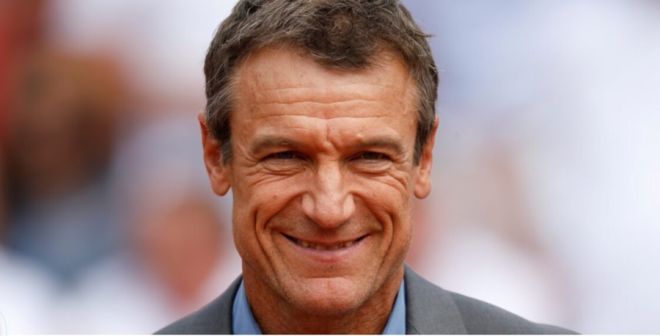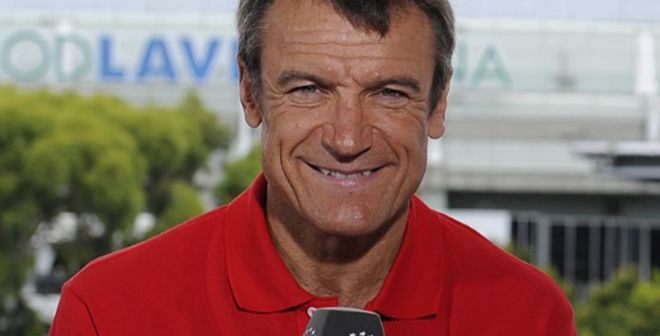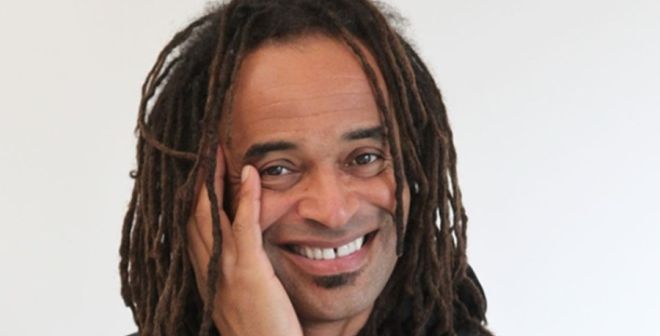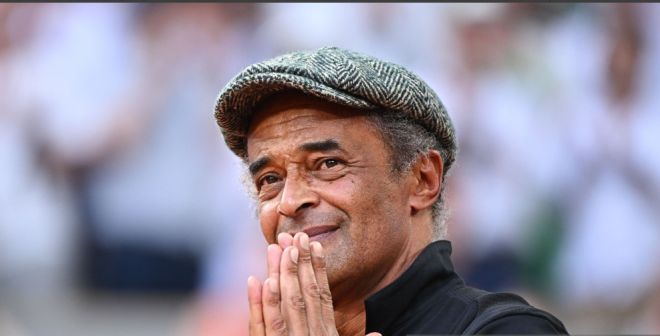Craig Tiley has occupied the most senior of roles at Tennis Australia and has the ultimate responsibility for one of the most respected sports federations in the Australia as well as in global sport. Craig Tiley is CEO and is also Tournament Director of the Australian Open, the most successful annual sporting event in the country. His plate is full but he wouldn’t have it any other way.
Q. Craig, up to this point of the year, if you look back through 2023, what would you say has been the highlight?
CRAIG TILEY: Well, I think from tennis's point of view, the highlight, there has been a COVID rebound. Every single event has enjoyed record crowds, record numbers, record ticket sales. It's a reminder if you've got a great product, people will pay and people will come. I think that would be the definite highlight.
Then from a players' perspective, I think we have seen the rise of some new talent, pretty exciting talent for the future. You know, in my career, I have recalled two periods where something similar happen. There's the retirement of the Evert Lloyds and the Navratilovas, the Connors and the McEnroes into the Sampras world and then Boris Becker and Steffi Graf, and then into the Serena and Venus Williams and Roger, Novak, Rafa, and Andy era.
So, I think we are at that next stage and that next phase. Who it's going to be, I think there is a much longer list of names of potentially who comes out.
Q. It's funny, you get all these doomsdayers that when the likes of Pete and Andre and all retire, Oh, what's going to happen to tennis? Then you get Hewitt, Federer, all those guys coming through. It's never going to suddenly end. There is always going to be new names and talents.
CRAIG TILEY: That's right. It regenerates. The history of the sport proves that. That's why the Grand Slams being the pillars of the sport are the ones that really bring their talent to life.
Martina Hingis is a classic example. The Australian Open, made a name for herself. Every one of these Grand Slams have had a player and players that are going to be the stars of the future, get to the final weekend and get put on the world stage, and then the world gets to see who the next talent is.
I think we're in an exciting time. On the men's side and the women's side, there's quite a lot. There are some that are starting to stake their claim as being the heir apparent to that. I think Coco and Carlos are the two that are probably ahead of the pack in that. But the pack is broad, which is great.
Q. What do you see as the most important developments in tennis firstly, with Australia and then secondly on a more global basis?
CRAIG TILEY: Well, I think tennis is trying to figure out how it does a better job globally. We're still seven governing bodies. Each have their own agreement. We are not taking full advantage of the opportunity that's in front of us. We know that not only is there more money on the table for the sport and for the players, but there is also a much better opportunity to have a much clearer and better narrative to the fan.
The fans are more discerning today, and as the macroeconomic environment takes more hold and starts to have a bigger impact, that decision by the fan is going to be in places that they can get in easily, that the event's price conscious, that they have great content and that it suits their needs, quick in and out.
If we put a product out on the market that doesn't meet the needs of the fan, we are going to lose. I think that there is clear evidence that we are losing in some categories and we are going to lose fans to other sports and other forms of entertainment, and we absolutely cannot just rely on our history and rely on what's happened, come before us, as a way that we'll just be able to repeat the future. We have to shape the future.
To do that, the sport's got to get together, everyone's got to give something up, and get to a point where we need to get to be much more leveraged in the aggregate.
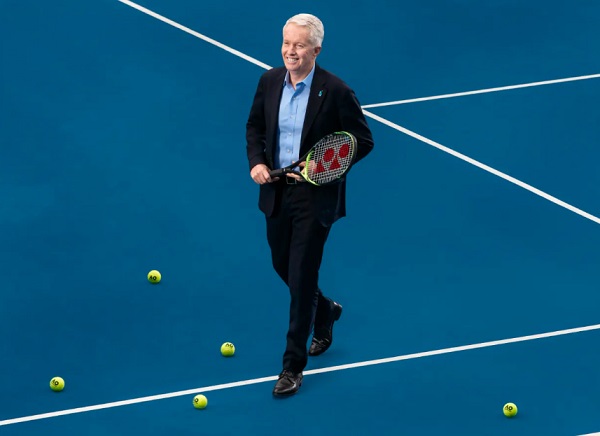
Q. Do you think the schedule is the biggest factor?
CRAIG TILEY: I think it's one of the biggest factors. I think there is too much. There is not a clear enough definition of what's premium and what's not premium.
There is not enough of a break for the players. I think the players have got to make more money. I think there will be more players making a bigger living. I have said that from day one. That's not a new comment.
I think that the sport's got to look at itself and the players need to have a legitimate period where at least there's a break provided. If they choose not to take a break, then it's on them, but at least there is a break that's provided and we have to have a clear delineation of what the premium tour is and what the rest of the tour is.
Q. On the point of money, there has been all the talk in more recent times about players not being able to make a living. After the top 200 or 250, they are not able to do anything. How much more money can tournaments really come up with to pay players? Do you think it's a case of the distribution needs to change and those players that are lower down or lose earlier are being able to pocket more?
CRAIG TILEY: I think you hit on a few things there. There is a combination of things. I think we've got to decide what's the total cohort that needs to make a living, whether they can afford a coach, afford a team, afford their travel, and then when they retire, still have a living and a really good pension.
So, I think there is ways to have a much bigger bonus pool, ways to have a much more aggressive pension plan. The distribution is always an important one. I think having bigger distributions early, which the slams do now. And then the quantum. It is difficult. You're right. I don't think tournaments can say I'm just going to pay another 10%, 15%, 20% of prize money, because they're really close to the margins on their profitability anyway. The majority of the events at the lower level of the sport are not profitable anyway.
So, we've got to be really creative on how we do it. The total player compensation package shouldn't just rest entirely with the slams. The slams need to make their contribution absolutely, but that's why I think there is more money on the table if there is an aggregated way of looking at the premium content.
Having 16 to 20 events a year that are premium, best of the best, there is an eligibility to be in it, there is a requirement to play in it, then you'll be able to support more players and then be able to have more funds trickle down to the rest because of the opportunity for the money that's at the top.
Q. Having said all that, do you think the sport is in a healthy state when you look across the board, men's and women's?
CRAIG TILEY: No. I'm always going to be a bit self critical of what we can do to Australia but then also critical of where we are globally.
If we were in a healthy state, we would have a premium tour. We would be all together in the opportunity. We would have a world team competition that hasn't fallen off its history and lost its relevance. If we were in a healthy state, we would have all those.
Also, where I think it's actually doing well is there is a lot more people playing the game than there were pre COVID, but there is still a lot to do with COVID because of that. Now the test on us is can we keep those people in the sport? Can we raise the commercial levels of the sport? I think that's going to be the next test.
I'm going to say no to that question, because I think there is a lot more that could be done.
Q. What do you think of the PTPA?
CRAIG TILEY: I'm all for player representation. I have said it from day one. I think the ATP and WTA have player councils that represent the players. This is the voice of the players. If the players feel like they don't get that representation, they're going to create something else.
But look, these kinds of things from a leadership point of view I embrace, and our team embraces, because if you have a player voice, if it's a strong player voice, that's a healthy situation for the sport. Whether it be the ATP, WTA, or PTPA that have that strong player voice will ultimately be up to them.
I'm not as big of a critique of the PTPA as maybe others are, because I do see an avenue, see an opportunity, and anyone that's standing up for the rights of the players, it's a good thing.
Q. I want to look at both of the tours, especially as far as the WTA is concerned. In my view, it's saved by four women. Now you have to put Coco Gauff into that mix. What do you think of the WTA?
CRAIG TILEY: Well, look, we have been fortunate. We came through an era of having great champions, American champions. We have the U.S. players reaching the highest levels of the game. That's why Coco Gauff is going to be so great for the sport. It is the commercial engine of the sport globally. So, I think that's great for the sport, having more of that. I do see some light at the end of the tunnel with that.
That's no disrespect, there is a lot of great European players, but the market in the U.S. is just so much bigger, and I think that's good for the sport globally.
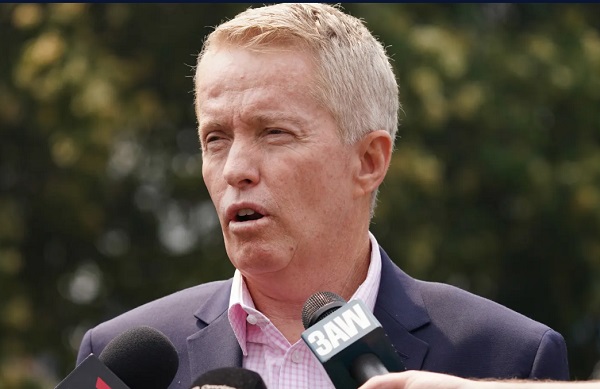
I think the WTA gets helped by the ATP and the WTA doing more things together. It's the great benefit of our sport. You know, most of the Grand Slams have been paying, for the last 40 years, been paying equal prize money. One of the great benefits of our sport are men and women have equal opportunity.
I think we've got to showcase that more, do more things together. The WTA have now got some outside investment, which will hopefully help them stimulate at this point it's only stimulating the compensation equalization, but hopefully it will help stimulate more opportunity for the women players.
You know, we need up and coming great players to be name brands. One of the things that not enough players appreciate is that in today's world, marketing is driven by yourself. You've got to be unbelievably in tune and have a sixth sense and even awareness of how you yourself market yourself or your success and in turn you market the sport.
Probably the only events that really have the true marketability as an event are the four Grand Slams. Outside of that, it's going to rely a lot on the players. So the more players that can realize that and do a much better job with how that's portrayed to the market, the better it is for the sport, both on the women's and the men's side.
Q. Taking that into consideration, what are your thoughts on the ATP and the direction they have been taking?
CRAIG TILEY: Again, the ATP, there has been a lot of change at the ATP which I think has been good for the future. But there still seems to be a lot of disconnect on the PTPA being formed, because players felt they weren't getting the right representation. Again, that's up to them. That's their business, not my business or our business.
But any time, I have said this when I was coaching, I used to say the pain of change is greater than the pain of losing. A lot of people would choose to lose versus to change. There is a lot of change that has taken place. Change is hard for people. I think it's change for the good.
I would like to see a premium tour. I would like to see the ATP and WTA come together. I would like to see a very strong advocacy group for the players, whether it's independent or part of the tours.
I think if we all agree on a calendar and commit to the calendar, right now there is too much grabbing of territory and land grabbing and everyone protecting their own interests. There is not much respect for contracts and agreements and commitments. I think that's unhealthy.
END OF PART ONE
More information about
Players

Serena Williams

Coco Gauff

Venus Williams

Novak Djokovic

Rafael Nadal

Roger Federer

Andy Murray
 Tennis Legends
Tennis Legends

Boris BECKER

Pete SAMPRAS

Jimmy CONNORS

John McENROE

Steffi GRAF

Martina NAVRATILOVA

















